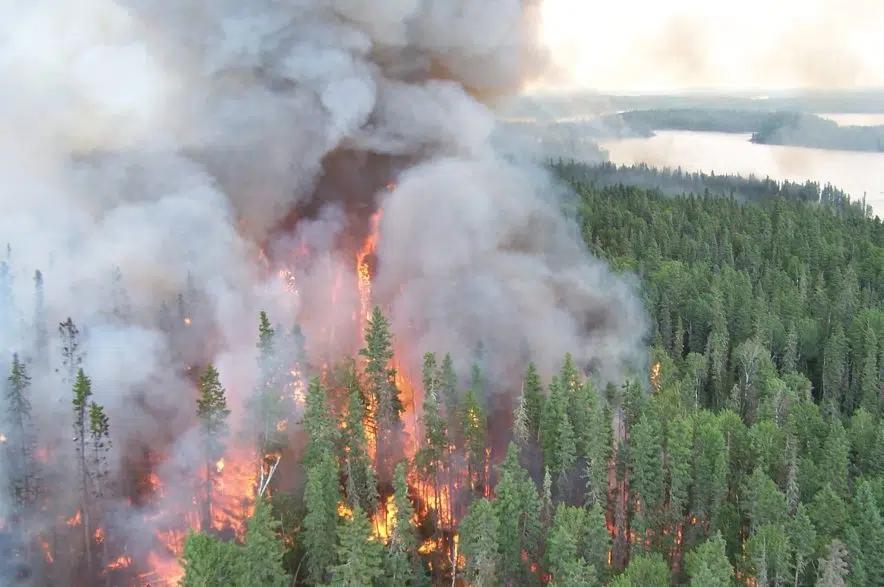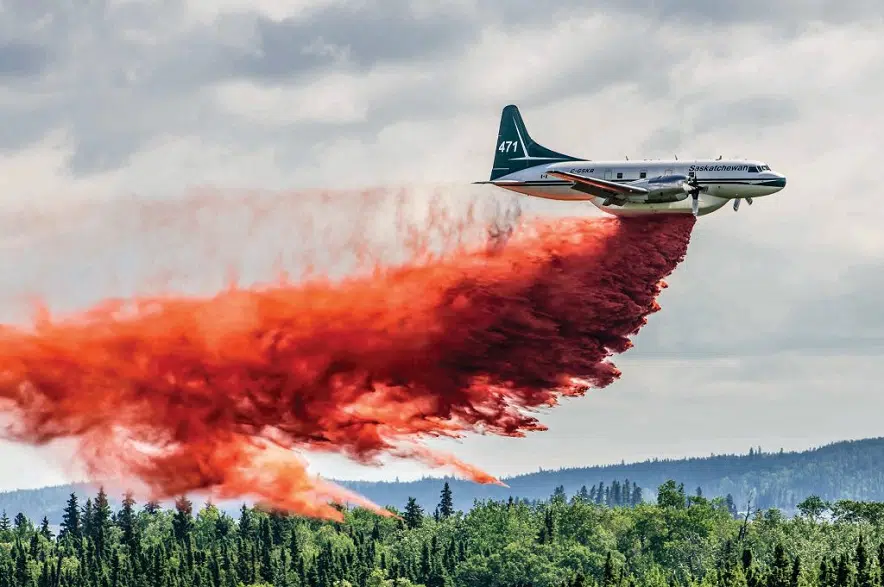It doesn’t take an expert to know that this past wildfire season in Saskatchewan was a bad one for the province.
Many days throughout the summer months were spent reading air quality index reports and tasting a thick layer of smoke in the air.
While it wasn’t the worst wildfire season on record for Saskatchewan, Steve Roberts — the vice-president of operations for the Saskatchewan Public Safety Agency (SPSA) — called it one of the busiest he’s seen in his 20-plus years on the job, comparing it to the summers of 2015 and 2017.
What was the damage?
The SPSA revealed on Thursday that this past summer saw more than 1.9 million hectares of land burned throughout Saskatchewan. That’s an area five times the size of Prince Albert National Park.
There were 494 fires recorded in Saskatchewan this summer, which came in well above the five-year average of 397.
In total, 2,703 people needed to be moved out of their communities, but ultimately there was no damage to any homes or critical infrastructure. A total of 43 total structures were lost over the past wildfire season, though no deaths or injuries were reported.

One of many wildfires burning throughout Saskatchewan this past summer. (Saskatchewan Public Safety Agency/Facebook)
How much equipment was used to fight the fires?
Contracted helicopters flew for more than 16,000 hours as they battled fires around the province.
The SPSA spent more than $7 million hiring and using heavy equipment to protect communities and infrastructure around the province.
There were also 2,500 hours flown by aircraft used to help battle the fires.
Those helicopters and aircraft were also used to help fight fires in the Northwest Territories and Alaska.
Is the 2023 wildfire season over?
Despite cooler temperatures anticipated over the coming weeks as winter moves into the province, the SPSA said wildfires can still be a threat.
Some areas are still dry, even though we’ve moved into the fall season and evenings are cooler.
What comes next year?
Roberts said the SPSA is preparing for next year like it would for any other wildfire season.
“As you saw nationally, wildfires are becoming more prominent. It was an issue across Canada and internationally. It’s a growing concern because of its impacts,” Roberts stated.
“Our effort here is to continue to improve and resource and prepare for the worst fire season. We have to prepare for as busy a season as 2023 should it occur in 2024.”
This summer was smoky, as many cities shattered their smoke-hour records.







